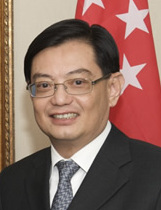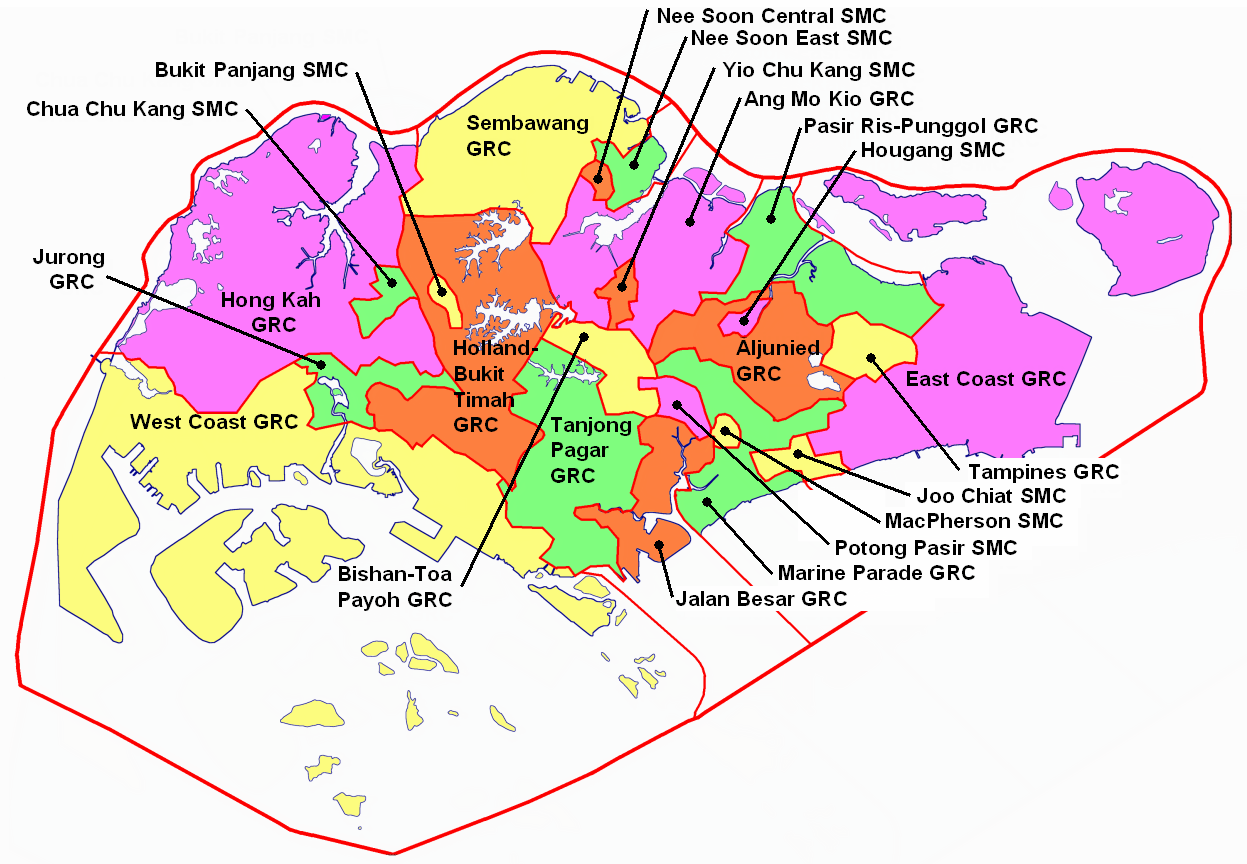
There are currently two types of elections in Singapore: parliamentary and presidential elections. According to the constitution of Singapore general elections for parliament must be conducted within 3 months of the dissolution of parliament, which has a maximum term of 5 years from the first sitting of parliament, and presidential elections are conducted every 6 years.

A Non-constituency Member of Parliament (NCMP) is a member of a Singaporean opposition political party who, according to the Constitution and Parliamentary Elections Act, is declared to have been elected a Member of the Parliament of Singapore, despite having lost in a general election, by virtue of having been one of the best-performing losers. The number of NCMPs is 12 less the number of opposition Members of Parliament ("MPs") elected. NCMPs enjoy all of the privileges of ordinary Members of Parliament.

General elections in Singapore must be held within three months after five years have elapsed from the date of the first sitting of a particular Parliament of Singapore. However, in most cases Parliament is dissolved and a general election called at the behest of the Prime Minister before the five-year period elapses. The number of constituencies or electoral divisions is not permanently fixed by law, but is declared by the Prime Minister prior to each general election pursuant to the Parliamentary Elections Act, which governs the conduct of elections to Parliament, taking into account recommendations of the Electoral Boundaries Review Committee. For the 2020 general election, there are 93 seats in Parliament organised into 14 Single Member Constituencies (SMCs) and 17 Group Representation Constituencies (GRCs). Each SMC returns one Member of Parliament while each GRC returns between three and six MPs, at least one of whom must be from the Malay, Indian or other minority communities. A group of persons wishing to stand for election in a GRC must all be members of the same political party, or a group of independent candidates. The voting age in Singapore is 21 years.

A group representation constituency (GRC) is a type of electoral division or constituency in Singapore in which teams of candidates, instead of individual candidates, compete to be elected into Parliament as the Members of Parliament (MPs) for the constituency. The Government stated that the GRC scheme was primarily implemented to enshrine minority representation in Parliament: at least one of the MPs in a GRC must be a member of the Malay, Indian or another minority community of Singapore. In addition, it was economical for town councils, which manage public housing estates, to handle larger constituencies.
Kayts Electoral District was an electoral district of Sri Lanka between August 1947 and February 1989. The district was named after the island of Kayts in Jaffna District, Northern Province. The 1978 Constitution of Sri Lanka introduced the proportional representation electoral system for electing members of Parliament. The existing 160 mainly single-member electoral districts were replaced with 22 multi-member electoral districts. Kayts electoral district was replaced by the Jaffna multi-member electoral district at the 1989 general elections, the first under the PR system, though Kayts continues to be a polling division of the multi-member electoral district.
Dr Teo Ho Pin is a former Singaporean politician. A member of the country's governing People's Action Party (PAP), Teo was the Member of Parliament (MP) for Bukit Panjang SMC from May 2006 to June 2020, for Holland–Bukit Panjang GRC for Bukit Panjang from October 2001 to May 2006 as well as for Sembawang GRC for Bukit Panjang from December 1996 to October 2001. He is also the Mayor of the North West Community Development Council (CDC).

Heng Swee Keat is a Singaporean politician who has been the Deputy Prime Minister of Singapore since 1 May 2019, Coordinating Minister for Economic Policies since 27 July 2020 and Minister for Finance since 1 October 2015 respectively. A member of the country's governing People's Action Party (PAP), he has been the party's First Assistant Secretary-General since November 2018 under Lee Hsien Loong. He previously served as Singapore's Minister for Education from 21 May 2011 to 11 September 2015. He has been the Member of Parliament (MP) for East Coast GRC for Bedok since 10 July 2020. He was the MP for Tampines GRC for Tampines Central from 7 May 2011 to 23 June 2020.
A by-election for the Punggol East Single Member Constituency in Singapore was held on 26 January 2013 because of the resignation of former parliamentary speaker Michael Palmer from the People's Action Party on 12 December 2012.

The 2015 Singaporean general election was held on 11 September to form Singapore's Parliament. The previous Parliament was dissolved on 25 August 2015 by President Tony Tan on the advice of Prime Minister Lee Hsien Loong, and candidates were nominated on 1 September that year.

The 2020 Singaporean general election was a general election held in Singapore on 10 July 2020. It elected members of parliament to the 14th Parliament of Singapore since Singapore's independence in 1965, using the first-past-the-post electoral system. Voting was mandatory for all Singaporeans who were aged 21 or above as of 1 March 2020.



